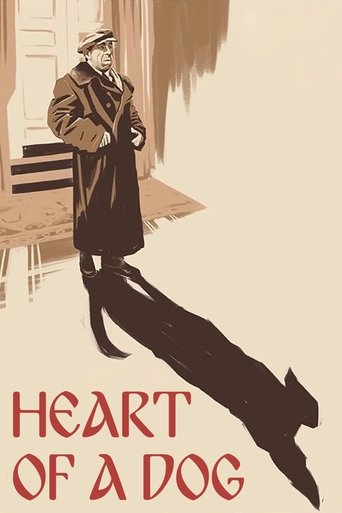"Собачье сердце" (1988), a film produced by Lenfilm in the Soviet Union, is a brilliant adaptation of Mikhail Bulgakov's satirical novella. Directed by Vladimir Bortko, the film masterfully captures the essence of Bulgakov's critique of the Soviet society through its dark humor and biting social commentary. The story revolves around a stray dog named Sharik, who is transformed into a man through a bizarre experiment conducted by the eccentric Professor Preobrazhensky. This transformation serves as a metaphor for the societal upheaval and the absurdity of the revolutionary changes taking place in the Soviet Union. The film's strength lies in its exceptional cast, with Evgeny Evstigneev delivering a captivating performance as Professor Preobrazhensky. His portrayal of the beleaguered yet determined scientist adds depth to the character, making the audience empathize with his struggle against the encroaching bureaucratic madness. Vladimir Tolokonnikov's portrayal of Sharik-turned-Sharikov is equally compelling, embodying the crude and unrefined nature of the newly created man, which serves as a stark contrast to the cultured world of the Professor. Visually, "Собачье сердце" is a treat, with its meticulous attention to the details of 1920s Moscow. The film's production design effectively recreates the period, from the opulent interiors of Professor Preobrazhensky's apartment to the grimy streets where Sharik roams. The use of black and white cinematography adds a layer of timelessness to the narrative, enhancing the film's satirical edge and emphasizing the stark contrasts between different social strata. Overall, "Собачье сердце" stands as a testament to the power of cinematic adaptation in conveying the complexities of literary works. It not only remains faithful to Bulgakov's original text but also amplifies its themes through the medium of film. The movie's enduring relevance lies in its ability to critique societal transformations and the consequences of unchecked scientific ambition, making it a must-watch for anyone interested in Soviet cinema and literature.
Año1988
Duración136 minuto
GénerosDramaComediaCiencia ficción
Países de producciónSoviet Union

